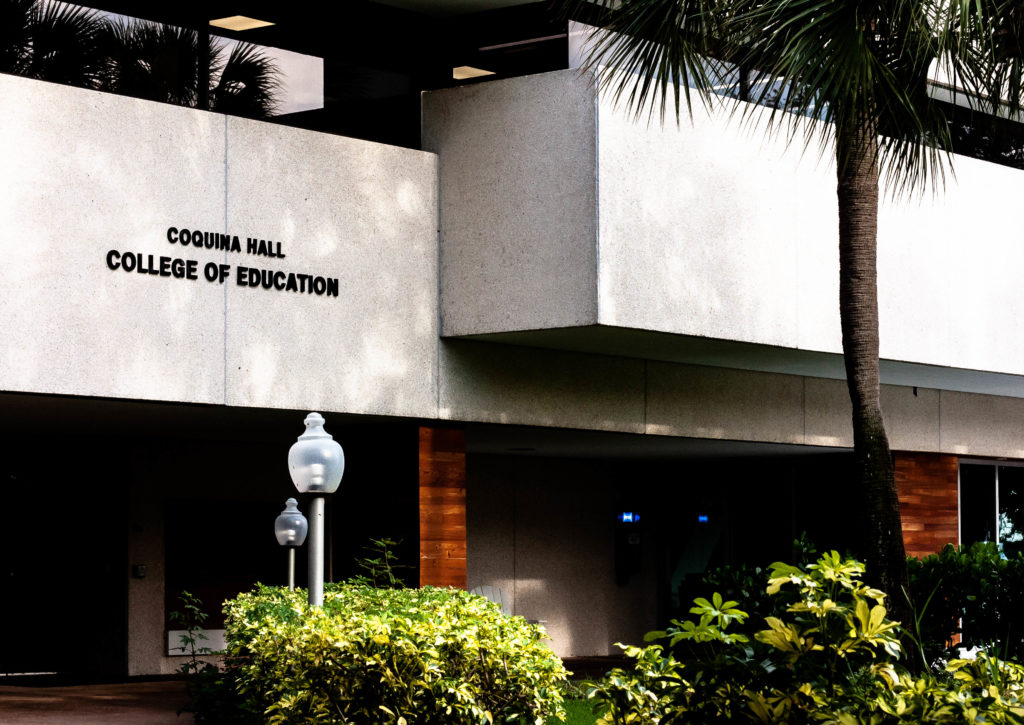
The College of Education was awarded a $5.5 million grant to continue training K-12 personnel how to spot students with emotional and mental health problems. Thomas Iacobucci | The Crow’s Nest
By James Bennett III
The USF St. Petersburg College of Education will continue spreading mental health awareness across the state thanks to a hefty grant from the Florida Department of Education.
Through the Youth Mental Health Awareness Training Administration Project, which was established by the university last year with the help of a $2.2 million grant from the Florida Department of Education, K-12 personnel are trained to recognize when students are struggling with emotional or mental health.
The recently awarded $5.5 million grant will be allocated for things like training materials, travel expenses and hiring substitutes when teachers are out of the classroom.
The program doesn’t just focus on teachers, though. School personnel like principals, cafeteria workers, custodians and bus drivers are also trained to identify the warning signs and help distressed students find professional help.
Everybody who is employed by the school district is trained because “people see different things in a classroom that they might not see on a bus, or vice versa,” said Jordan Knab, the university’s principal investigator.
There are a few steps to the training.
First, there’s a “train the trainer” component, where personnel from the National Council for Behavioral Health meet with up to 16 people at a time and teach a three-day course on “mental health first aid.”
Next, those 16 people go back to their school district and train school employees.
Since the in-person training will likely take a few years to reach every school district, YMHAT has also contracted with a New York-based online training course called Kognito.
“Some people in the training say, ‘The only thing I knew about mental illness is something I saw in a movie, or read in a book.’” Knab said. “So it’s really a kind of rudimentary understanding of mental health as a whole.”
According to Knab, 1,116 instructors have been certified in youth mental health first aid. Additionally, 72,000 people have completed the online Kognito training.
Knab added that, at this point, the strongest indicators of YMHAT’s success have been subjective comments from individuals who have identified students with issues. In some cases, the students who recieved help reported they were thinking about committing suicide or had intended to commit suicide that day.
“When we first initiated the training, we saw a number of those coming forward. Folks were saying, ‘Wow, this really is making a difference. This really is working.’” he said.
The funding for YMHAT was allocated through state legislature under the Marjory Stoneman Douglas High School Public Safety Act. The bill was passed less than one month after the school shooting and is summarized as “critical public safety legislation (to) establish safeguards designed to enhance safety in schools.”
The College of Education was given the $2.2 million and the following $5.5 million because of the university’s connection with the Multiagency Service Network for Students with Severe Emotional Disturbance Administration Project, also known as SEDNET, which is hosted at USF St. Petersburg.
SEDNET is a statewide network of 19 regional projects that provide intensive services for students with severe emotional or mental health problems.
“Recognizing the warning signs of mental health distress is a vital part of keeping our schools safe and our students healthy,” Brenda L. Walker, Associate Dean of the College of Education said in a university press release.
“We’re pleased to continue to raise awareness and understanding on this important issue,” she said.



